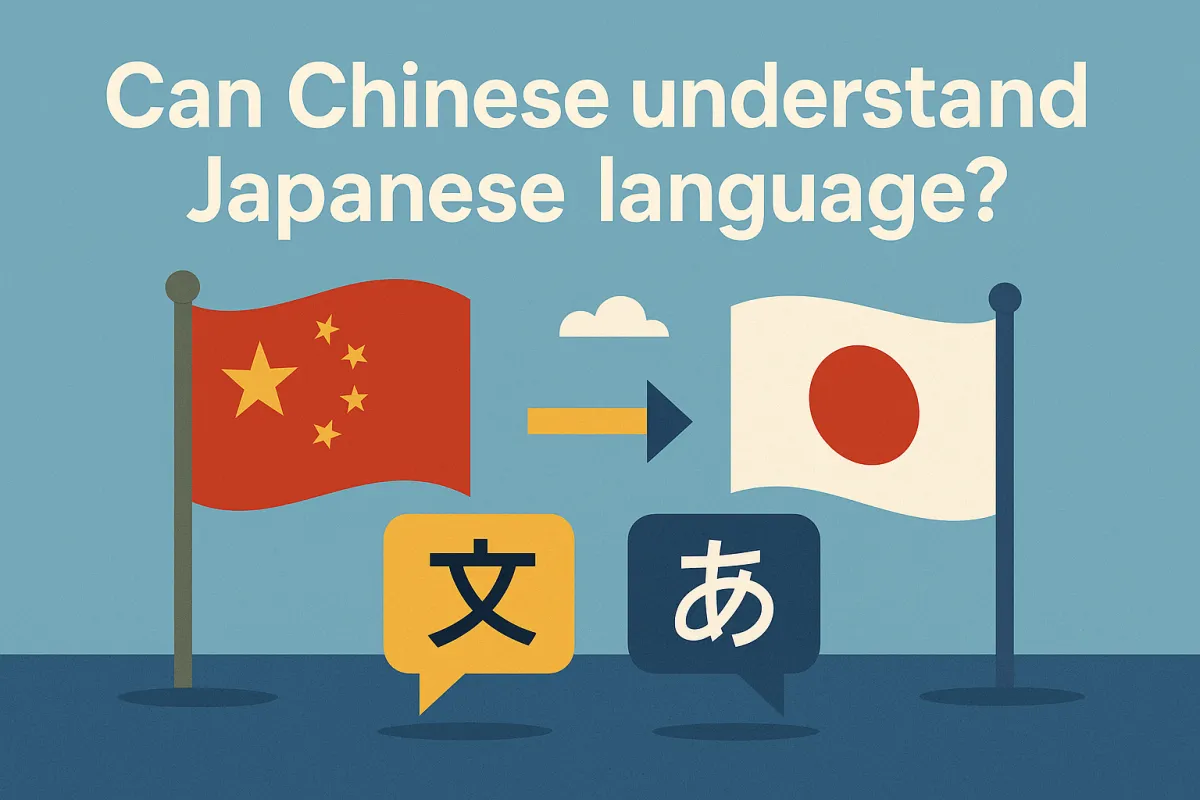
Can Chinese Speakers Understand Japanese?
Can Chinese Speakers Understand Japanese?
At first glance, Chinese and Japanese may appear similar—especially in writing. After all, both use Chinese characters (Hanzi in Chinese, Kanji in Japanese), and they’ve shared thousands of years of cultural exchange. But the question remains:
Can Chinese people understand Japanese?
The short answer is: Not really—not without studying it first.
Let’s explore why.
1. Shared Writing Elements: Kanji vs. Hanzi
One of the biggest overlaps between Chinese and Japanese is Kanji, the set of characters in Japanese writing that originated from Chinese Hanzi. Many Kanji characters look the same or similar to Hanzi and carry comparable meanings.
For example:
人 (person)
水 (water)
山 (mountain)
A Chinese reader might be able to guess the general meaning of some Japanese written text (especially nouns), but that’s where the similarity ends.
2. Pronunciation Is Completely Different
Even when a Kanji character is identical to a Chinese Hanzi, it’s often pronounced very differently in Japanese. Japanese has both on’yomi (Sino-Japanese readings) and kun’yomi (native Japanese readings), which adds layers of complexity.
For example:
The character 学 (learning/school)
Chinese: xué
Japanese: gaku (on’yomi), manabu (kun’yomi)
So while the meaning may be guessed from the character, spoken comprehension is nearly impossible without learning the language.
3. Grammar Is Completely Different
Chinese and Japanese have very different grammar structures:
Chinese uses Subject-Verb-Object (SVO) word order.
Example: 我吃饭。("I eat rice.")Japanese uses Subject-Object-Verb (SOV) word order.
Example: 私はご飯を食べます。("I rice eat.")
Japanese also uses particles, verb conjugations, and levels of politeness, which do not exist in Chinese.
4. Spoken Language Is Not Intelligible
Even though Chinese and Japanese borrowed from each other historically, their spoken languages evolved independently. A native Chinese speaker listening to Japanese speech will not understand it—not even the basic structure—without studying Japanese.
It's a bit like asking if an English speaker can understand French because they share the Latin alphabet and a few similar-sounding words. There's a connection, but not enough for mutual understanding.
5. Some Chinese Words in Japanese Sound Familiar
There are a few exceptions. Due to modern globalization and shared cultural heritage, there are loanwords and cognates that Chinese speakers may recognize, especially in written form—such as:
电话 / 電話 (telephone)
学校 / 学校 (school)
医院 / 医院 (hospital)
But again, recognizing a few written words doesn’t equal comprehension.
In Summary
Final Thoughts
While Chinese and Japanese share historical roots and characters, they are completely different languages in pronunciation, grammar, and everyday usage. A Chinese speaker might be able to guess the meaning of a few written Japanese words, but they cannot understand Japanese as a whole without dedicated study.
That said, Chinese speakers often find Kanji easier to learn, and their familiarity with characters can give them a head start if they choose to study Japanese formally.
